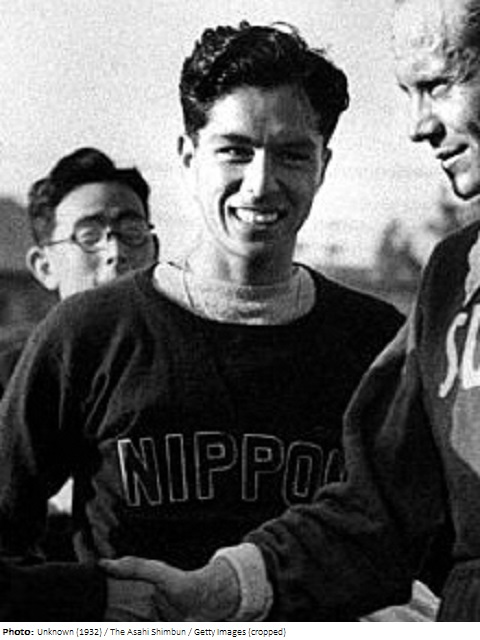
| Roles | Competed in Olympic Games |
|---|---|
| Sex | Male |
| Full name | Seiichiro•Tsuda |
| Used name | Seiichiro•Tsuda |
| Original name | 津田•晴一郎 |
| Born | 26 July 1906 in Matsue, Shimane (JPN) |
| Died | 20 September 1991 (aged 85 years 1 month 25 days) |
| Measurements | 166 cm / 56 kg |
| Affiliations | Keio University, Minato (JPN) / Joban Life, Chiyoda (JPN) |
| NOC |  Japan Japan |
Seiichiro Tsuda started athletics while attending Matsue Junior High School. He then entered the Kansai University Preparatory Course. From his European idols he learned that marathon runners needed not only endurance, but also speed, which he gained running middle and long distances on the track. He was the first Japanese person to apply this strategy. In 1928 he proceeded to Keio University and qualified for the Amsterdam Olympics in the national marathon trials, finishing second to Kanematsu Yamada.
Unhappy with his sixth place, Tsuda concentrated on the next Olympics. On the road to Los Angeles, he won multiple Japanese championships (1,500 in 1929, 1,500 and 5,000 in 1930, and 5 and 10K in 1931) while pursuing his philosophy of speed training. In 1928 and 1931 he was also a member of his university’s relay team in the Hakone Ekiden. Together with two runners from occupied Korea, he represented Japan in the 1932 Olympic marathon. After failing to medal for the second time he retired from competitive running. In the 1980s, a press release reported that not only was he shocked that he could not run against Paavo Nurmi, due to Nurmi’s violation of the amateur rules, but Tsuda had also missed his grape juice at a feed station past the halfway point of the Olympic race.
After graduation Tsuda joined Joban Life, a major insurance company. He continued to be involved in athletics, however, and was appointed marathon coach for the Berlin Olympics. Allegedly due to illness he resigned one week before the departure to Europe. Rumors spread. however, that he was rejected by some of the runners. During the war, he worked for an organization under the Ministry of Commerce and Industry, but after the war he returned to sport and founded Sports Nippon, the first Japanese daily sports newspaper. In athletics, he served as leader of the Japanese team for the Boston Marathon in the 1950s.
Personal Best: Mar – 2-33:26 (1932).
| Games | Discipline (Sport) / Event | NOC / Team | Pos | Medal | As | |
|---|---|---|---|---|---|---|
| 1928 Summer Olympics | Athletics |  JPN JPN |
Seiichiro Tsuda | |||
| 5,000 metres, Men (Olympic) | ||||||
| 10,000 metres, Men (Olympic) | ||||||
| Marathon, Men (Olympic) | 6 | |||||
| 1932 Summer Olympics | Athletics |  JPN JPN |
Seiichiro Tsuda | |||
| Marathon, Men (Olympic) | 5 |